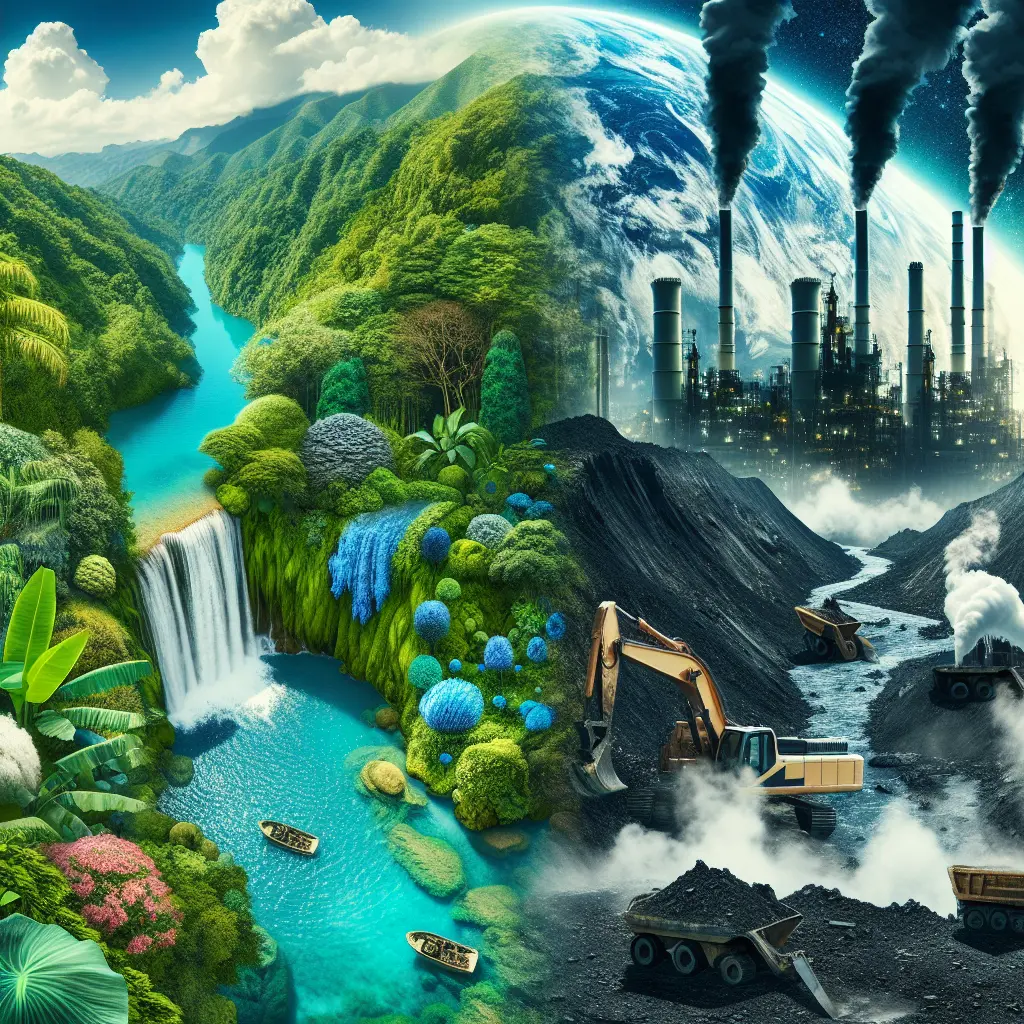
The cinematic universe of James Cameron's "Avatar" not only captivated audiences with its breathtaking visuals and riveting storytelling but also underscored potent environmental themes that mirror our real-world ecological crises. From the lush vistas of Pandora to the poignant narrative of exploitation and resistance, "Avatar" serves as a compelling allegory for environmental conservation, ethical quandaries, and the consequences of human greed.
As we anticipate the release of "Avatar 3: Fire and Ash," officially confirmed through various global announcements (‘Avatar 3’ lanza sus primeras imágenes y confirma su título oficial), it's an apt moment to delve deeper into the environmental themes of "Avatar" and their real-world parallels. This exploration is not just timely but crucial in understanding the broader implications of our interactions with the environment.
The Lush Pandora and Earth’s Vanishing Forests
One of the most striking aspects of "Avatar" is its depiction of Pandora’s rich, bioluminescent ecosystem. However, this fantastical portrayal is shadowed by the stark reality of deforestation on Earth. Much like the aggressive resource extraction seen on Pandora, Earth's forests are continually diminished for timber, mining, and agriculture, disrupting biodiversity and indigenous communities alike. This parallel draws a direct line from the fictional narrative to pressing real-world environmental issues in "Avatar."
Exploitation of Natural Resources: A Tale of Two Worlds
In "Avatar," the human intrusion into Pandora driven by unobtanium extraction starkly mirrors our world’s relentless exploitation of natural resources. This theme is not just a distant sci-fi scenario but a real-time global crisis where ecosystems are endangered for economic gain. The narrative effectively highlights the industrialization impact in "Avatar," urging viewers to reflect on sustainable resource use and environmental ethics.
Indigenous Rights and Environmental Guardianship
"Avatar" intricately weaves the theme of indigenous rights with environmental stewardship. The Na'vi people's deep connection with their land and their struggle against external exploitation resonates with the ongoing battles faced by indigenous communities worldwide. These narratives emphasize the importance of respecting and learning from indigenous practices in environmental conservation, a lesson that is increasingly relevant today.
The Ecological Imbalance and Sustainability Lessons
The ecological imbalance caused by human activities in "Avatar" serves as a stark reminder of similar issues on Earth. The disruption of Pandora's ecosystem due to human interference offers critical sustainability lessons. It underscores the need for co-existence with nature, rather than dominance over it, a message echoed in current environmental activism efforts around the globe.
Human Greed and Environmental Ethics
At its core, "Avatar" confronts the theme of human greed and its ecological consequences. The film challenges viewers to consider the moral implications of their actions on the environment. In today’s context, this theme is ever-relevant as societies grapple with balancing economic development with ecological preservation.
The Role of Technology and Virtual Realities
Interestingly, current technological advancements echo some aspects of "Avatar." For instance, Meta’s redesigned Quest app focuses significantly on Horizon Worlds, blurring lines between virtual and physical realities (Meta’s redesigned Quest app puts a big focus on Horizon Worlds). This reflects the Avatar program itself, where human consciousness is projected into Na'vi avatars. Such technologies prompt discussions about virtual solutions to real-world problems, including environmental education and conservation.
Recent Developments and Future Directions
With "Avatar 3: Fire and Ash" (Avatar 3 a enfin son titre officiel), there is speculation about new themes that might be explored, particularly concerning ecological restoration or further conflict resulting from environmental degradation. As we engage with these narratives, they serve as both entertainment and poignant reminders of our responsibility towards Earth.
Conclusion
The "Avatar" series is more than just a cinematic achievement; it is a profound commentary on environmental issues that are as real on Pandora as they are on Earth. As we await further developments from the upcoming sequels and immerse ourselves in discussions about technology's role in our environmental future (This week's Meta Quest news was stupidly jam-packed), let us not forget the core messages of sustainability, respect for indigenous rights, and ethical engagement with our planet.
In closing, whether through the lens of a filmmaker or the actions of each individual, it's clear that understanding and protecting our world is not just science fiction—it's an urgent reality. Let's take inspiration from "Avatar" to foster a world where technology, ethics, and environmental stewardship coexist harmoniously.
With hope for our shared planet,
Alicia Fieldstone